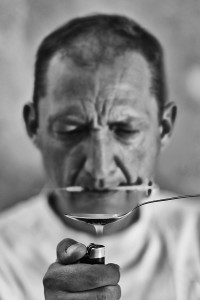Opiate Addiction Rehab

For anyone who is struggling with a serious problem with prescription opiates, an opiate addiction rehab can be the thing that changes your life, and can even save your life. Too many people get dependent on opiates, and too many addicts never get the help they need.
The fear of experiencing withdrawal, or even having to cope with life without opiates often keeps people who need the help from ever giving another attempt at kicking the habit.
There is always help for those who need it, whether they know it or not, and opiate addiction rehab is the perfect place for many people to start their journey of recovery.
Opiate Addiction Rehab: Abuse and Dependence
The excessive abuse of opiates leads to a medical condition known as chemical dependence, physical dependence or substance dependence. What this means is that you have become both physically and psychologically dependent on opiates. This is the first element of severe addiction.
Physical dependency becomes pretty apparent when you try to stop using opiates abruptly and experience extremely uncomfortable physical and mental withdrawal symptoms, as well as obsessive and compulsive thoughts.
Opiate addiction rehab can help you stop your use by helping you address a physical dependence directly through a safe medical detox.
Opiate Addiction Rehab: Symptoms
Opiates addiction leads to devastation all many aspects of life, including:
- Financial
- Legal
- Physical health
- Mental health
The long term effects of opiate addiction range in severity and can affect each individual differently, especially depending on the method which the user takes the substance. Some long term effects include:
- Increased tolerance
- Decreased level of testosterone for men
- Enlargement of the prostate for men
- Excessive sweating
- Swelling in the arms and legs
- Chronic constipation
- Anxiety
- Dry mouth
- Sinusitis
- Respiratory distress
Opiate Addiction Rehab: Withdrawal
Opiate addiction also can lead to a list of painful and problematic withdrawal symptoms. These withdrawal symptoms typically are things like:
- Restlessness
- Muscle and bone pain
- Muscle spasms
- Insomnia
- Diarrhea and vomiting
- Chills and goose bumps
- Intense anxiety
Withdrawing from opiates on your own is difficult and can even feel like an impossible task. So many people break down and use again just to make the pain and discomfort go away. This using to stop the pain of not using is a vicious and deadly cycle.
Opiate Addiction Rehab: Detox
Opiate addiction rehab consists of two phases:
- Evaluation
- Stabilization
During the first stage you will be given an assessment in order to find out how much opiates is currently in your system, as well as how much you have been using and over what length of time. This is done by way of a urine drug screen, and with any further information you provide.
Because programs for opiate addiction rehab are in a medical setting in which you are treated for both physical dependence and addiction, the results of your drug screen and information disclosed during your assessment are strictly confidential just like any other medical information is. All of this is done in order to make a treatment plan that will best serve you.
During a program for opiate addiction rehab, you will be giving taper medications in order to wean you off of opiates in both a safe and comfortable way.
Opiate Addiction Rehab: Inpatient
The rehab stage of opiate addiction rehab treatment offers safe haven while you heal and recover from opiate use. During rehab, you will have all your needs provided for including nice, comfortable housing and well-balanced meals while you are given key, life-saving information about substance abuse and addiction.
You will attend both individual and group therapy sessions where you will begin to heal your mind while healing your body and you will learn tools and coping methods in order to live a healthy lifestyle
Are you struggling with a dependence on opiates and are unsure as to whether there is any way out? If you or a loved one is struggling with opiates abuse or addiction, please call toll-free 1-800-951-6135. We want to help. You are not alone.
